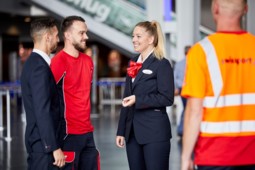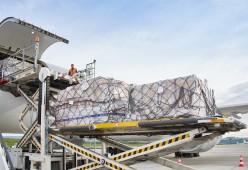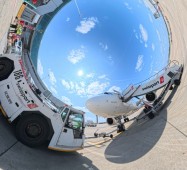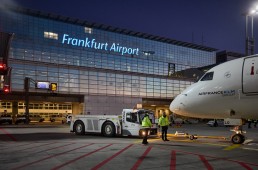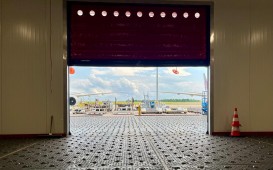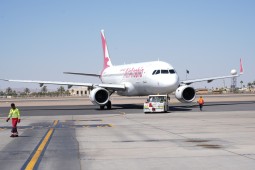The recovery is slowly taking flight – we can’t let red tape ground it again: Warwick Brady op-ed
By Warwick Brady, President and CEO, Swissport
Walking through an airport terminal over the past 18 months has been a surreal experience. The cacophony of holiday makers and business travelers crowding check-in halls and shops has been replaced by shuttered shops and restaurants, deserted departure lounges and empty baggage halls.
When I used to work as an airline executive, the absolute worst-case scenario the industry factored into its business planning was a flight stoppage of three months, so we always ensured that we had enough liquidity to see out such a period. You simply couldn't imagine anything more extreme… until now.
From an economic perspective, the aviation industry has arguably been among the sectors hardest hit by the pandemic and, wherever you look, the numbers are stark.
Over 4.5 billion passengers travelled globally before the pandemic, but this number fell by over 60% to roughly 1.76 billion after the virus began to spread. Globally, airlines are estimated to have incurred $370 billion of revenue losses during 2020.
Our business has suffered like many others with an initial volume decline of over 80%, prompting us to take decisive action to safeguard the company.
We have had to be extremely quick and agile in adapting everything we do – from staff planning and allocation, to check in procedures, air cargo handling, and baggage handling through to fueling, lounge management and cabin cleaning.
These measures worked and, thanks to the dedication and hard work of our staff, we are now emerging from the pandemic with a strong cash position and new owners who fully support our strategic plan.
So, what’s next?
While the pandemic is far from over, the green shoots of recovery are slowly starting to take hold and, as vaccination programs worldwide gather pace and travel bubbles are created, there has been a slow but notable uptick in travel, especially in the short and medium-haul markets in recent weeks.
Long-haul travel, however, continues to be hampered by restrictive travel and quarantine rules. For example, our passenger service agents at one airport are currently handed an updated, thirty-five-page document with the latest travel regulations… every single day.
It’s hard to see how air traffic can recover fully and continue the process of returning to pre-crisis levels when its wrapped in restrictive red tape such as this. Governments therefore need to ensure that guidelines are not only clear, but also reliable and fit for purpose.
For long-haul travel to pick up on a broad scale, we need a global protocol for the mutual acceptance of certificates of vaccination, immunity or negative test results between countries. Only this can provide passengers with the comfort, confidence and security they need to plan their travels.
For the near future we expect a short but robust European summer travel season. In the United States and in Australia, too, domestic travel has rebounded strongly. These regional recoveries will carry us through 2021, but international tourism, the global hospitality industry and the aviation sector at large need more than temporary regional recoveries to return to pre-crisis stability and provide reliable jobs and livelihoods for their staff.
In the current, fluid market and regulatory environment, close cooperation between regulators and industry bodies and flexible collaboration models between airports, airlines and service companies are of paramount importance. And governments should remain prepared to step in with temporary, targeted support, whenever there is a significant relapse of COVID-19 restrictions.
The COVID-19 crisis has been devastating for our industry, but it has also shown just how well our sector can meet even the toughest of challenges head on.
The pandemic has accelerated structural changes already taking place, from digitalization to AI supported tools. We see the most significant potential in a closer collaboration between the different partners in aviation.
At Swissport, we are ready and able to play a central role in a swifter sector recovery. We want to offer customers and partners superior process flexibility and system compatibility to help them unlock cost efficiencies. We are working through an ambitious program, forming Swissport into a more efficient, agile and digitally savvy business. As the global sector leader, we want to combine great customer service with cost leadership to support airlines in ramping up post-COVID.
We have emerged from this crisis thanks to the dedication and commitment of our staff and the support of our customers. Now, as our customers prepare to turn the page from COVID-19 and ramp-up operations, Swissport stands ready to return that support as a reliable partner.
Here is to airport terminals returning to their vibrant and brilliant best very soon.
Contacts
- Christoph Meier
- +41 (0) 43 815 00 22
- [email protected]

